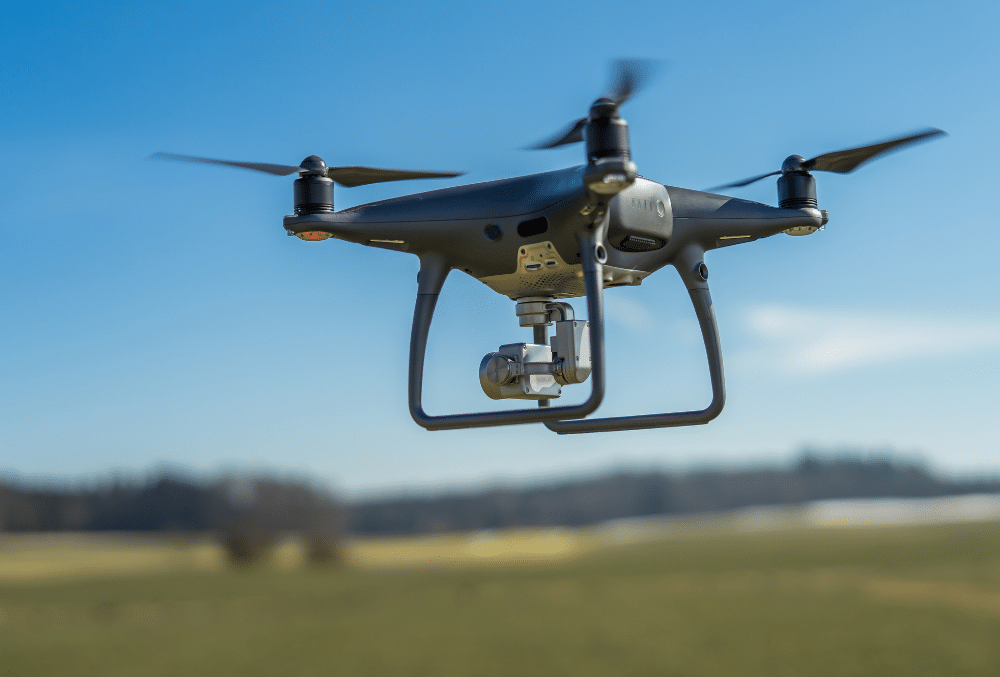Small Business Insurance: Why Your Videography Company May Not Be Properly Insured for Drones
April, 19 2022
Drones are transforming businesses in Canada, and small business insurance may not necessarily cover all risks associated with flying drones for a videography company. As more drones dot the air for business use, more accidents involving drones are being reported.
Drones, also called unmanned aircraft vehicles (UAVs), share the skies with other drones and aircraft, creating the potential for crashes. Transport Canada considers anyone who operates a drone a pilot. If a drone crash occurs, causing property damage or injuries, your videography business could be held liable.
Whatever happens, you want to be sure you have the right Ontario small business insurance to protect against liability claims.
Drone Accidents Are Increasing in Canada
Drone videography and photography are used by aerial photographers, realtors, safety inspectors, delivery services, farmers, and data gathering services, just to name a few small businesses that use drones. Risk is present no matter the purpose of drone videography.
Transport Canada is concerned about all risks that pose a risk to aviation safety, and that includes mid-air incidents between drones and crewed aircraft. As an example, a drone collided with a passenger aircraft over Jean Lesage International Airport in Quebec in 2017. Fortunately, the plane landed safely, and there were no injuries to passengers or the crew on board.
Transport Canada reports that there were 9,468 drones registered in Ontario and nearly 28,000 in all of Canada as of August 2019. That is a high number considering registrations became mandatory on June 1, 2019.
Drone incidents have been on the rise in Canada. There were 24 drone accidents in 2018, and the number rose to 33 from January of 2019 to June of 2019. Of all the provinces, Ontario leads in the most drone accidents.
The damage to a commercial airline could be significant if a drone collided with it. The risk of having an accident with a drone is greatest when planes are taking off or landing.
Transport Canada hopes now that drone operators are required to register their drones, there will be greater awareness of drone accidents, and the trend of incidents involving drones will start to decrease.
Drone Regulations for Ontario Small Businesses Using Drones
Videography companies need to know the laws and regulations for drone operation. Drone operators are required to obtain a drone pilot’s certificate, and they must have it with them anytime they operate a drone.
Drones that weigh less than 250 grams do not need to be registered, and operators are not required to be certified to fly them.
All drone operators who operate drones weighing over 250 grams must also register their drones, according to Canadian law, even if they are built from a kit. Drones that carry objects that increase the weight to over 250 grams must also be registered.
Drones that weigh over 25 kilograms do not need to be registered, but operators must obtain a special flight operations certificate.
Transport Canada requires an Advanced Operations Certificate for drone operators who fly drones over people or who operate drones in airspace that is regulated by an air traffic controller.
Drone operators must follow the Canadian Aviation Regulations at all times, as well as all other applicable laws.
Furthermore, drone operators must respect the privacy laws of others, criminal code, trespass acts, and other laws related to voyeurism and privacy.
If you disobey drone laws, you could get a ticket by the local police department and be fined up to $15,000 if you put people or aircraft at risk.
Small Business Insurance for Drones
Drone insurance is a fairly new area for insurance companies, and the related risks are still being explored. Until insurance companies have more data about drone risks, they have to rely on insurance for manned aircraft. Traditional small business insurance policies contain exclusions for aircraft, whether it is manned or unmanned.
At the current time, small business owners of videography companies are not required by law to have insurance for drones. Nonetheless, business owners are responsible for any accidents or injuries their drones cause, so it is crucial to obtain drone insurance.
The following types of insurance coverages will protect your videography business against claims involving drones:
- Commercial Drone Liability – protects against accidental bodily injuries or property damage
- Commercial Drone Hull Insurance – protects against damage to the drone
- Payload Insurance – provides coverage for items attached to the drone, including cameras, and LIDAR lasers
- Cyber Liability – covers costs related to cyber-attacks on drones or computer infrastructure and data breaches
New videography businesses should also have the same commercial insurance coverages as other types of businesses.
- Commercial Property Insurance – covers business property and equipment and loss of earnings
- Errors & Omissions Insurance – covers mistakes you make in providing services or giving advice
- Directors & Officers’ Insurance – protects the company’s leadership from allegations of misrepresentation, mismanagement, and breaches of fiduciary duties
- Workers’ Compensation Insurance – covers work-related injuries and illnesses if you have employees
- Employment Practices Liability Insurance – protects against allegations of discrimination, wrongful termination, sexual harassment, wage and hour disputes, and failure to promote employees
- Key Person Insurance – protects the company if a partner or key contributor dies until a replacement can be found
- Commercial Crime Insurance – protects the company against employee theft, forgery, computer fraud, and embezzlement
Foreign commercial package policies also cover drone businesses operating around the world.
Tips for Safe Drone Operation
Drone operators are essential pilots, and they must hold safety to a high standard. In that role, drone operators must be diligent in operating their drones safely to ensure shared airspace that is safe for all.
Transport Canada suggests drone operators abide by the following practices:
- Fly your drone where you can see it at all times
- Fly drones below 122 meters (400 feet)
- Fly drones away from bystanders (at least 30 meters away)
- Do not fly near emergency operations or advertised events
- Steer clear of forest fires, outdoor concerts, and parades
- Do not operate drones near airports or heliports
- Do not fly drones near airplanes, helicopters, or other drones
As with other types of aircraft, the weather is a key issue. Fly drones only in good weather. Be careful about interference from other electronic signals. Avoid operating drones over roadways, and never operate a drone while under the influence of drugs or alcohol.
Final Thoughts
We may be merely at the tipping point on how videography companies can profit from operating drones. Whatever type of videography your business specializes in, be sure your drone’s flight plan does not violate restricted airspace and follows all aviation rules.
Malfunctions are possible with any type of sophisticated electronic equipment, and Ontario business insurance designed for drone operations is a necessity for videography companies.
To learn more about how to properly insurance your videography company, contact Duliban Insurance Brokers for expert advice at 855-385-4226 today!
External Links











